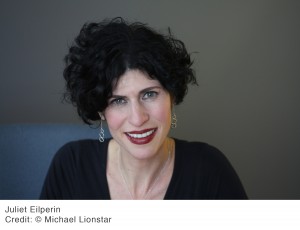 Yesterday I was called by Washington Post reporter Juliet Eilperin, who was doing a follow-up story on the Peter Gleick “Fakegate” release of Heartland Institute documents.
Yesterday I was called by Washington Post reporter Juliet Eilperin, who was doing a follow-up story on the Peter Gleick “Fakegate” release of Heartland Institute documents.
Normally, I would not blog about talking to a reporter, but in my experience talking with a high-profile reporter like Juliet invariably leads to regret. Reporters will listen to my points, openly “agree” with me on many of them, and then take one poorly phrased snippet from a 20 minute conversation to make it appear I support their narrative.
If this does not happen when Juliet’s article appears, the strain might be too much for me to bear. My world would be shaken.
I’m just sayin’.
So, I thought I would recount to the best of my recollection what we discussed. Then we will see how well her article represents my views. If she ignores them completely, well, that would be better than what usually happens.
First, I pointed out that on the science of global warming I have been tagged a “lukewarmer”, sometimes attacked by both sides. I said that my position on the science of global warming causation is that I don’t think we know with any level of confidence how much of the warming in the last 50 years was due to humans versus nature.
Next, she asked why (a relative few) scientists on both sides of the issue choose to enter the public fray over global warming, even though they know they will be attacked by the other side. I said I think the primary motivation is about the same on both sides: we know the science has policy implications, and those of us who take a stand do so based upon our understanding of how those policies might help (or hurt) people or nature.
In the case of the outspoken IPCC-supporting ‘consensus’ scientists, they believe mankind is destroying nature and will cause the climate system to be increasingly hostile to life as we know it. (I did not venture into the quasi-religious motivation of some who believe humans should have zero impact on the natural world).
In the case of skeptics like me, I believe the science supports a climate system which is not so fragile, and that premature energy policies which circumvent free market forces end up killing poor people.
Next, Juliet seemed like she wanted a statement regarding the moral equivalence of the Climategate e-mail releases and Peter Gleick obtaining the confidential Heartland Institute documents. I said that if the Climategate e-mails were indeed obtained by a hacker, then both appeared to me to be illegal.
But I *also* emphasized that what the Climategate e-mails revealed was behavior which was clearly crossing the line for scientists…such as collusion to interfere with the peer review process.
In the case of the Heartland documents, in contrast, there was nothing there to see. Someone (Gleick?) had to forge an additional document to make it look like Heartland had nefarious motives.
I said I have not publicly condemned Gleick’s unauthorized access to the Heartland documents because doing so would be somewhat hypocritical on my part, since I did not also condemn the Climategate e-mail releases. Instead, I choose to evaluate what the documents from both sources contain and what they say about the behavior of ‘activists’ on both sides of the global warming issue.
On that basis, there is no moral equivalence.
Climategate reveals taxpayer-funded scientists behaving badly, and possibly illegally. The Heartland documents reveal the mundane activities of a privately-funded organization trying to bring some balance to the coverage of climate change science.
I don’t recall right now whether any other issues of significance were discussed in the interview, although there might have been.
It will be interesting to see how Juliet represents my views. I predict spin.
But if she accurately and fairly represents my views, I will apologize for doubting her.

 Home/Blog
Home/Blog



